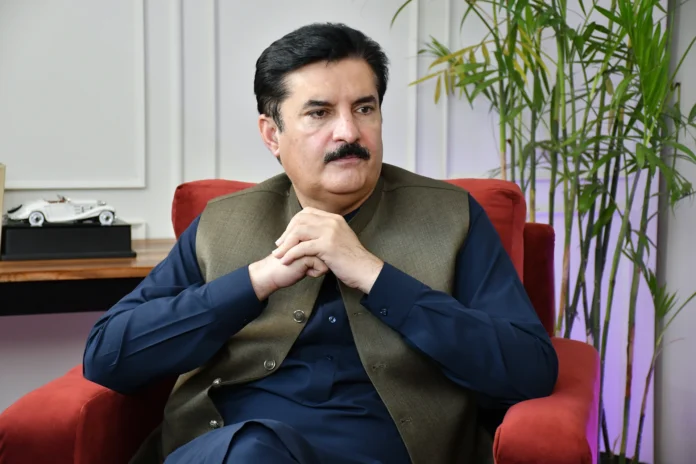In a time of political flux, economic uncertainty, and regional unrest, Khyber Pakhtunkhwa stands at a critical crossroads. As the gateway to Pakistan’s northwest, the province carries both the weight of its challenges and the promises. Leading the province through this complexity is Governor Faisal Karim Kundi, a third-generation public servant committed to democratic values. In this wide-ranging and candid interview, the Governor shares his insights on political polarization, youth empowerment, rising militancy, and how KP can reclaim stability, unity, and progress through strategic leadership and national commitment.
Q: Khyber Pakhtunkhwa holds strategic importance, yet political polarization has deepened in recent years. As Governor, what steps are needed to rebuild trust and promote reconciliation?
Governor: Political polarization has been a persistent challenge in Khyber Pakhtunkhwa, but I believe it’s not rooted in the system; it stems from the conduct of certain political parties. In other provinces, we’ve seen a degree of political stability. Even with past disagreements, including with the PML-N, we’ve been able to hold dialogue, offer constructive criticism, and collaborate on key national issues such as security and economic development.
However, in KP, specific elements particularly linked to PTI continue to deepen divisions. During moments of national importance, like recent tensions with India, nearly all political forces stood united except one. While the nation rallied together, this group chose to spread disunity and push agendas like the NRO. Their refusal to engage constructively keeps the polarization cycle alive.
What we need now is political maturity, mutual respect, and a shared commitment to Pakistan’s future over personal power plays.
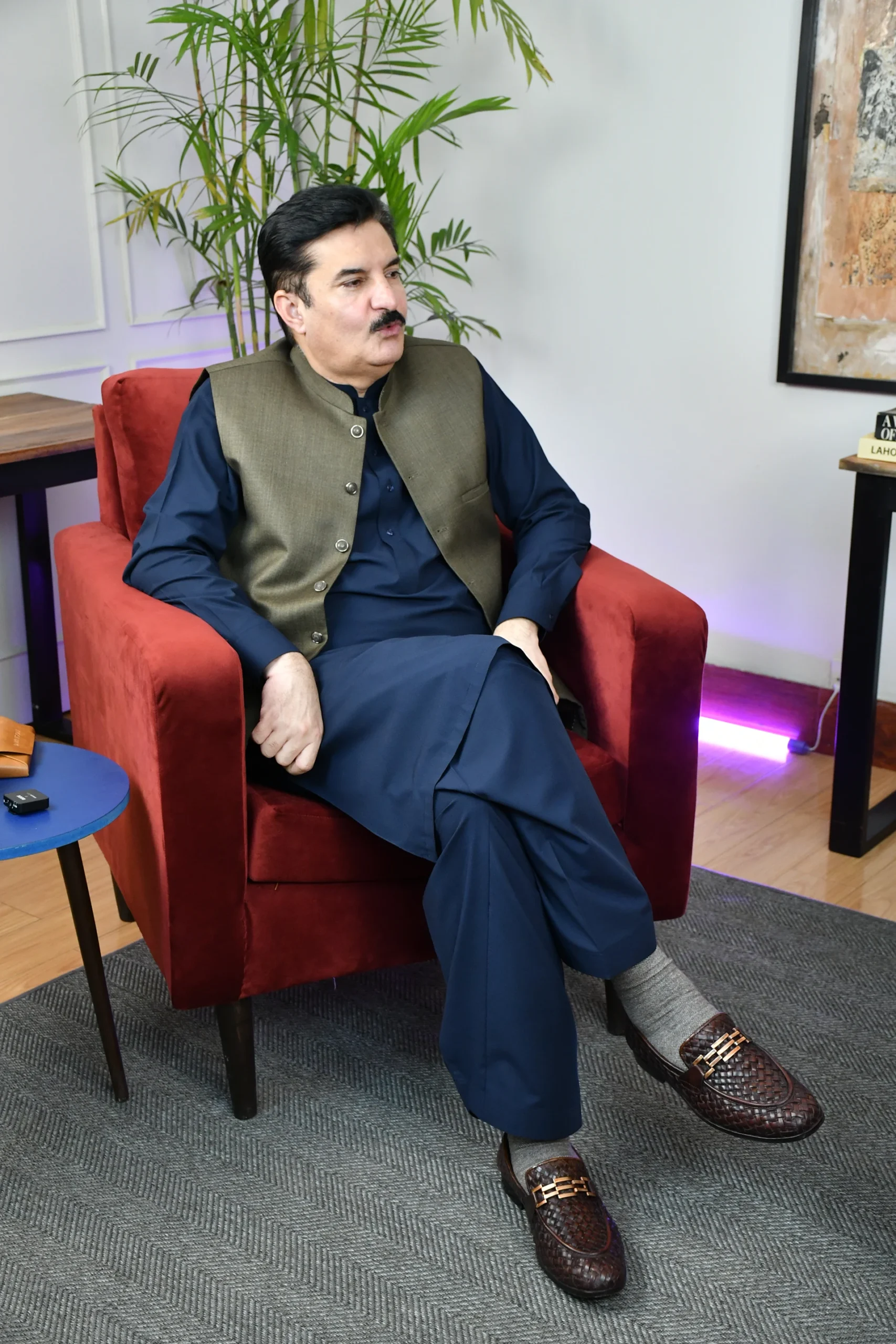
Q: With terrorism resurging in KP, why has Pakistan struggled to address its root causes once and for all?
Governor: Terrorism in Khyber Pakhtunkhwa hasn’t merely resurfaced; it has returned with full force. To understand the present, we must revisit the past. Under the previous administration, a controversial decision was made to reintegrate approximately 40,000 militants from Afghanistan. At the time, this move was framed as a gesture of reconciliation. Many of these individuals had previously fled or been detained during earlier counter-terrorism efforts, and we had invested significant resources in neutralizing their threat.
Unfortunately, the assumption that they would reintegrate peacefully proved dangerously naive. Many have once again taken up arms. The critical question remains: who takes responsibility? Those who engineered this policy are no longer in office; some have retired, and others are facing legal consequences.
Geography compounds the challenge. KP shares a long, porous border with Afghanistan, a region repeatedly destabilized by departing global powers. The most recent withdrawal left behind billions of dollars’ worth of advanced weaponry now in the hands of militants.
These groups possess sniper rifles, thermal scopes, and night vision technology, giving them a distinct edge over our under-resourced security forces.
Our police are courageous, but courage alone cannot counter high-tech weapons. When a sniper fires from a kilometre away in darkness, an ill-equipped constable stands little chance.
We are not battling the insurgents of yesterday. This is a new era of militancy, better armed and more dangerous. Addressing it demands more than force. We need strategic planning, improved readiness, and accountability for the policy failures that brought us here.
Under the previous administration, a controversial decision was made to reintegrate approximately 40,000 militants from Afghanistan. The assumption that they would reintegrate peacefully proved dangerously naive.
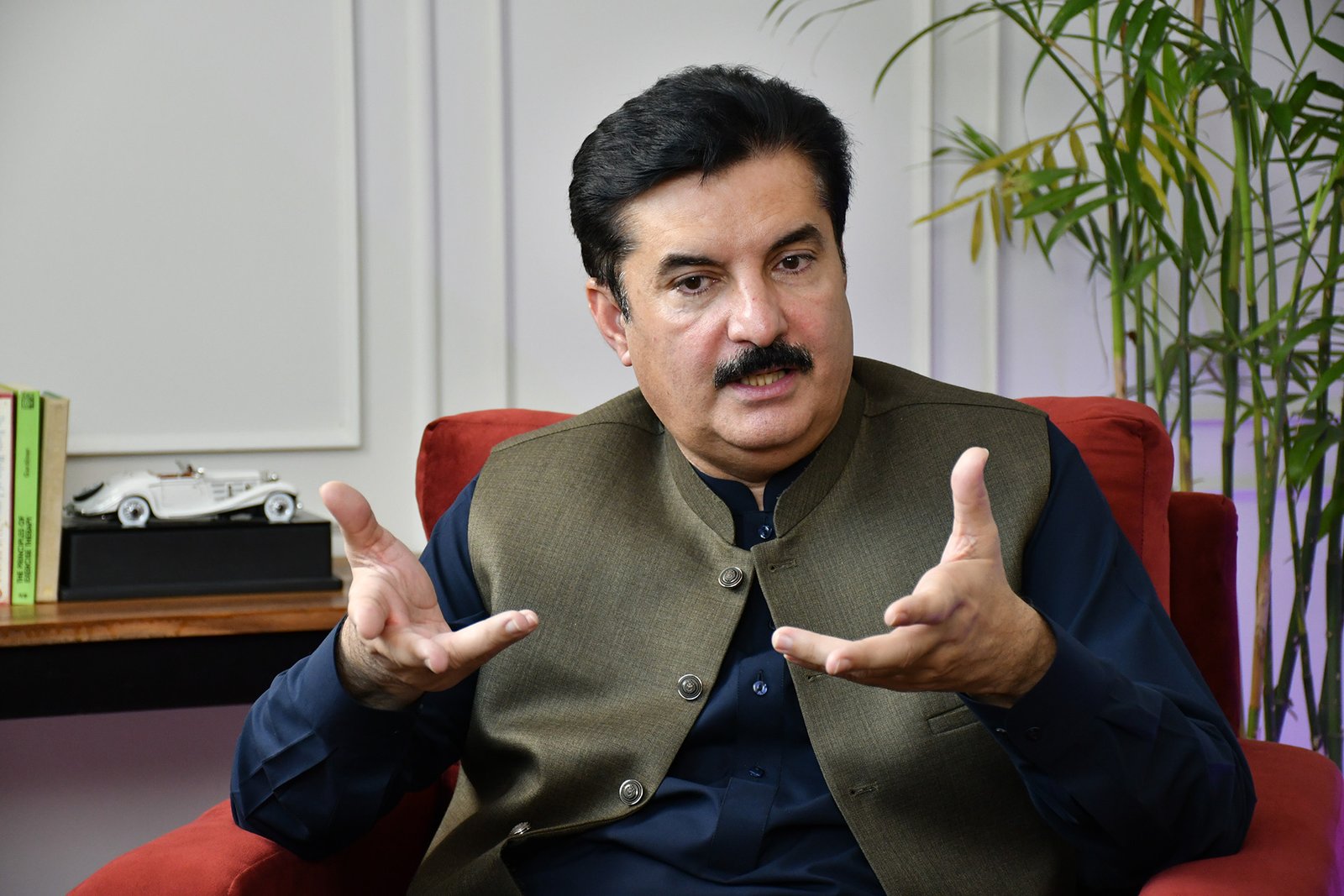
Q: Militancy needs more than weapons; it needs funding and support. Where do you believe this lifeline is coming from?
Governor: In 2013, we handed over a relatively stable and peace-ful Khyber Pakhtunkhwa. That peace, however, has since been disrupted. When we took office in 2008, KP was plagued by violence suicide bombings were frequent, militants operated openly, and even the national flag had vanished from parts of Swat. Some claimed militants had reached the other side of the Margalla Hills. This was the grim reality we inherited.
Through collective sacrifices from the military, police, politicians, journalists, civil society, and even children, we pushed back. By 2013, peace had begun to return. But the progress was undone when subsequent leadership allowed militants to return under the misguided belief that they would reintegrate peacefully. That decision has proven disastrous.
Today, southern KP is once again under threat. In some areas, people feel unsafe even stepping outside after Asr prayers. What’s worse, there has been no serious attempt to confront this rising insecurity.
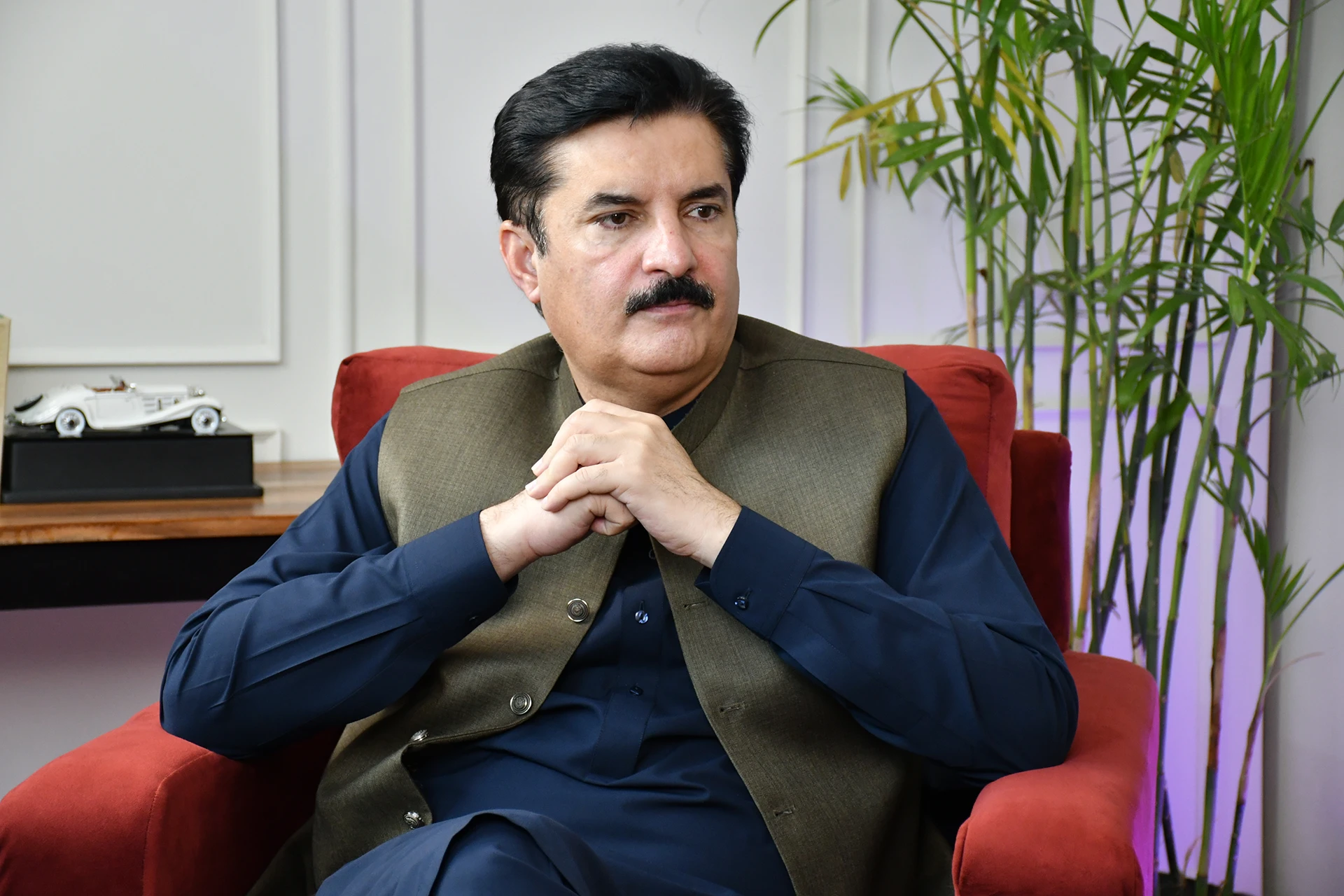
On the financial front, let’s remember that in 2009, under the NFC Award, President Zardari allocated an additional 1% of the national divisible pool to KP for its frontline role in the war on terror. Since then, the province has received over 700 billion rupees under this head.
And yet, our police remain severely under-equipped—lacking bulletproof vests, vehicles, modern weapons, and forensic labs. When militants possess advanced technology, and our forces remain ill-prepared, the issue is not just funding—it’s misman-agement, poor priorities, and a failure to take the security of this province seriously.
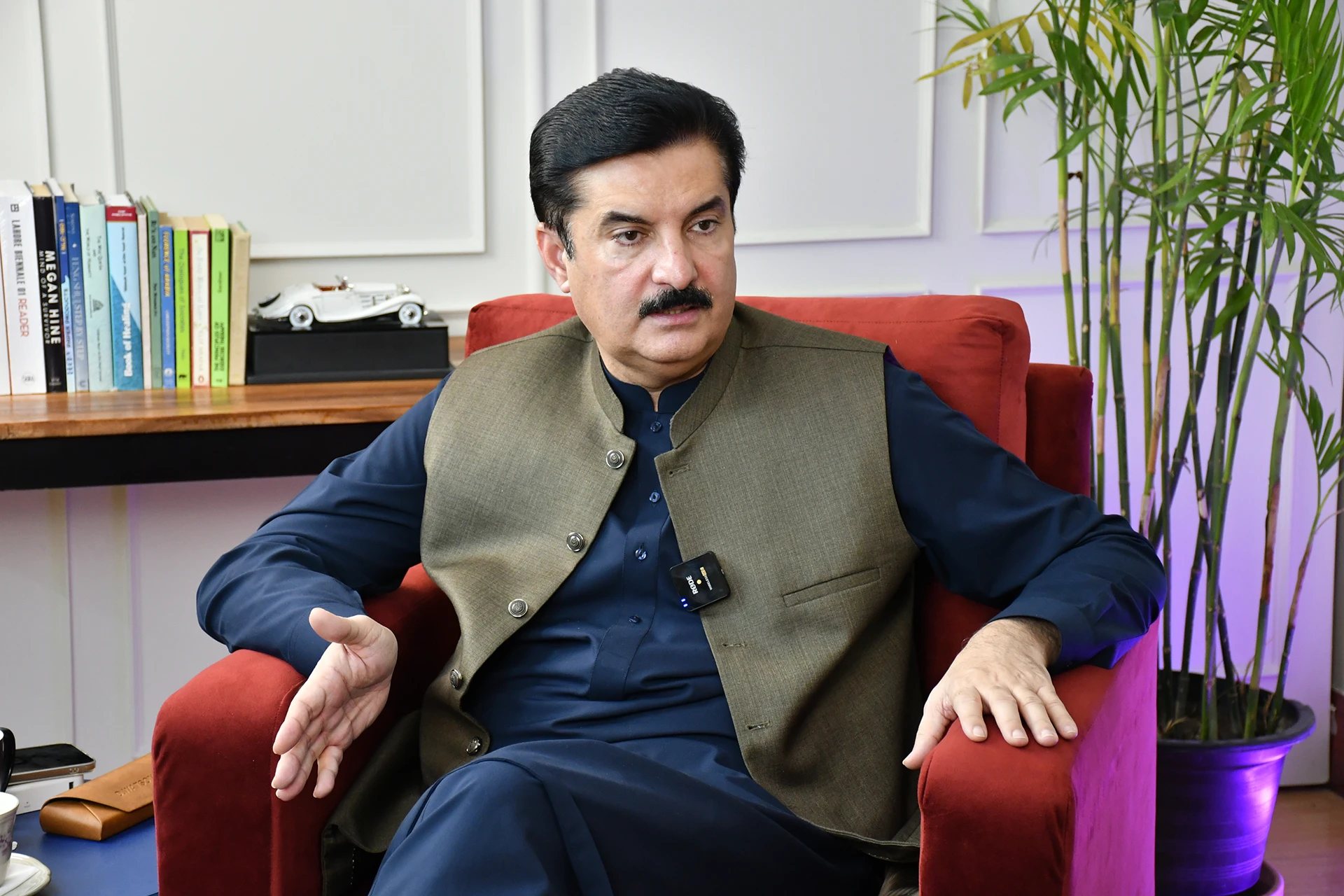
Q: Despite major security funding in KP, transparency remains a concern. What steps will you take to ensure accountability and rebuild public trust?
Governor: When we speak of transparency and accountability, we must also recall the ideals many leaders have claimed to uphold, particularly the principles of the State of Madinah. In that model society, if there was a betrayal of public trust or misappropriation of resources, there were clear consequences.
Leaders weren’t rewarded or promoted for negligence; they were held to account. If funds allocated for security, meant to equip our police and protect our citizens, were instead diverted for personal luxuries or political perks, then we must ask: who is responsible? Who will be held accountable? This isn’t just about financial mismanagement; it’s about moral failure.
We were often reminded of the saying that if even a dog were to go hungry by the River Euphrates, the ruler would be held answerable. Well, today, by the River Swat, 16 of our people have been martyred. I ask, who answers for them? Is this vision of Madinah selectively applied? Is accountability only for the poor, while the powerful remain untouched?
If we truly want to build a just society, we must create independent, transparent monitoring systems. Budgets must be traceable, audits must be public, and those who fail the people must be held to the same moral and legal standards they once preached.
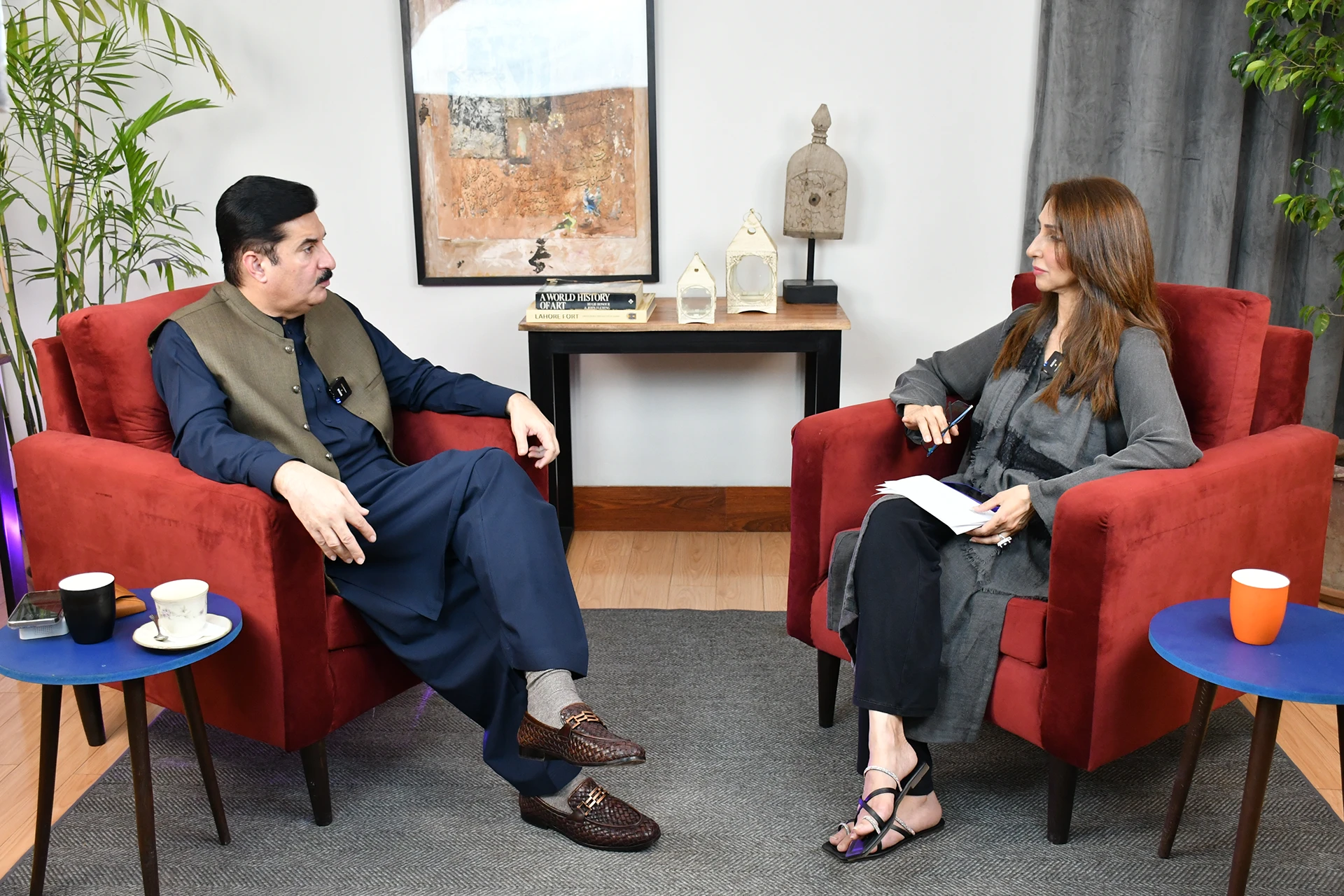
Q: Given KP’s educational gaps, what should be the top priorities in the coming years to ensure meaningful youth empowerment through education?
Governor: Education is the backbone of any society, yet in Khyber Pakhtunkhwa, it has faced consistent neglect. Pro-mises were made to build libraries, improve health educat-ion, and establish new universities—but the reality has been dis-appointing. Instead of developing institutions, land belonging to universities is being sold off just to keep them running. This is not sustainable; it’s a disservice to future generations.
Many schools are now closing due to a shortage of teachers. For an entire year, we struggled to appoint vice-chancellors. Out of 34 public universities, 26 lacked permanent leadership. It was only after Supreme Court intervention that appoint-ments resumed. Without that, we could have lost yet another academic year.
Worse still is the erosion of integrity in teacher recruit-ment. In some shocking cases, exams were conducted not in exam halls, but in ministers’ chambers. Individuals were caught red-handed. If teachers are hired through dishonest practices, how can they be expected to teach with honesty and inspire future generations?
Youth empowerment is impossible without restoring trust in our education system. We must ensure transparent recruitment, merit-based appointments, and an unwavering commitment to academic integrity if we are to move forward.
Q: Without jobs, education loses its youth appeal. How do you plan to tackle unemployment in KP, and what systems will ensure effective implementation and accountability?
Governor: Khyber Pakhtunkhwa currently has one of the largest youth populations among the four provinces, yet I believe our young people are being maltreated. If national youth programs, such as scholarships, skill development initiatives, and laptop schemes, are not reaching the youth of KP, then we are failing them.
These are excellent programs in principle, but their bene-fits must be equitably distributed. KP’s youth deserve the same access to opportunity as anyone else in the country. And if we label KP as a “troubled region,” then that’s all the more reason to invest in its young generation, not less.
Imagine what it would mean to take 800,000 young people from this province, provide them with quality education, and link that education to meaningful employment. That would be the most powerful message against militancy.
We’ve heard promises before. The U.S., for example, had committed to setting up Reconstruction Opportunity Zones (ROZs) to create jobs in conflict-affected areas. Those zones never materialized. The gap between what was promised and what was delivered has left many in KP disillusioned. We risk breeding more frustration and alienation in a region that deserves hope.
Q: Women’s empowerment in KP is both vital and sensitive. What steps are needed to boost their role in political and social leadership?
Governor: Women’s empowerment is not just a political agenda, it’s a personal commitment I hold deeply for Khyber Pakhtunkhwa. The young women of this province are incredibly bright and capable. At university convoca-tions, you’ll often see that women dominate the list of top achievers and gold medalists, sometimes outnumbering men by as much as 70 to 30. Yet, despite this academic success, many struggle to transition into meaningful careers due to the deeply rooted challenges of a male-dominated society.
While women across Pakistan face obstacles, those in KP encounter more entrenched, systemic barriers. As a re-sult, highly educated women those with Master’s or even PhD degrees often find themselves teaching in small private schools near their homes, not because of a lack of ambition, but due to limited safe and accessible oppor-tunities.
We are working to change this. Our aim is to build safer, more inclusive pathways into careers in government, education, healthcare, and entrepreneurship. Empower-ment must be practical—it requires dismantling systemic barr-iers, supporting mobility, and ensuring women have acc-ess to real, dignified leadership opportunities that match their potential.
Q: Tell us “Adopt a Player” initiative?
Governor: I launched the “Adopt a Player” initiative after witnessing the untapped potential of youth in Khyber Pakhtunkhwa, particularly in sports. Unfortunately, while many leaders have won votes by promising opportunities in the name of youth and cricket, those promises have largely gone unfulfilled. Ask yourself: is there a single stadium in KP today fit to host a PSL match or an international team? The answer is no. Even the new stadium whose name was later changed has been under cons-truction since 2017 and remains incomplete, reflecting a troubling lack of commitment.
Every day, I receive messages from young athletes across KP children who’ve won medals, represented Pakistan, and yet receive no recognition. To change that, we’re organizing a formal awards ceremony at the Governor’s House to honor these young achievers. Their success stories offer a softer, more hopeful image of KP and Pakistan to the world.
In addition, we’re launching the “Adopt a Player” program to support underprivileged athletes. Many of them face financial hardships, with training and diet expenses ran-ging between Rs. 50,000–60,000 per month costs they cannot afford. We are calling on individuals, philanthropists, and the private sector to step in and sponsor these players. Even adopting one or two athletes can make a difference. If we can support 40 to 50 players and help 8 to 10 of them reach the national or international stage, that alone would mark a significant achievement not just for KP, but for Pakistan as a whole
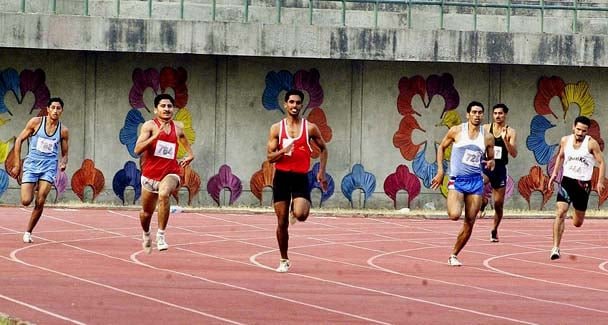
Q: Despite its potential, KP’s tourism is held back by security and climate challenges. What sustainable steps can unlock growth in this sector?
Governor: For the past 13 years, we’ve continuously heard claims of major progress in tourism. But the reality on the ground tells a different story, particularly after the tragic incident in Swat where 16 tourists were martyred. These were people who came to enjoy the beauty of our province, but for over two hours, they cried out for help with no one to respond. The nearest help was just an hour away, yet no coordination, no response team reached in time. This wasn’t just a system failure, it was a turning point.
As concrete steps, we’ve initiated local rescue efforts. We’ve provided two ambulances from our office and are now donating locally-built boats in Swat. We’re also working to establish a proper coordination office to ensure emergency response is available in real-time. Tourism in KP has immense potential, but unless we build trust through safety, swift response systems, and genuine accountability, we will continue to fall short. This is not just about promotion, it’s about protection.
Q: There’s been talk of a no-confidence motion. Would you like to clarify your stance and comment on the current political climate?
Governor: I’ve always believed that bringing a vote of no confidence is a constitutional and democratic right of the opposition, whether in the National Assembly, Senate, or any provincial assembly, including KP.
As long as the opposition has more than one member, they are entitled to exercise this right. There is nothing unusual or alarming about it. In Khyber Pakhtunkhwa, if they manage to gather the necess-ary numbers, they are free to move such a motion. With the upcoming Senate elections prev-iously delayed we’ll get a clearer picture of the opposition’s strength and internal unity. That, in itself, will be a political indicator.
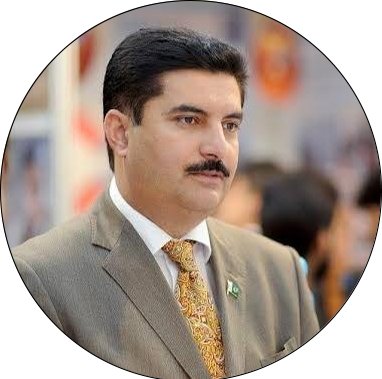
Q: While foreign investment is ideal, national pro-jects can also create jobs. Are there any SEZs or industrial initiatives planned to boost KP’s eco-nomic development?
Governor: We are making every effort to promote industrial development in Khyber Pakhtunkhwa. However, since 2018, major executive decisions such as the des-ignation of Special Economic Zones (SEZs) rest with the Prime Minister. A recent proposal for an industrial zone in Dera Ismail Khan raises serious concerns. I would urge the Chief Minister or Inspector General to visit the site without a security convoy and assess whether any investor would feel safe doing the same. If the area remains prone to extremism and lacks basic infrastructure, expecting investment there is unrealistic.
Policy alone isn’t enough; investment requires a secure and supportive environment. Safety, infrastructure, and clear prospects for return are non-negotiable. Take Peshawar, for instance. It has one of the region’s largest gem markets, yet even local traders hesitate to visit due to security risks. Likewise, KP has immense potential for religious tourism and is home to ancient civilizations, but if tourists don’t feel safe entering the province, how can we expect to tap into that potential?
Investor interest does exist, but it’s our duty to create an environment that is stable, accessible, and truly ready for long-term economic growth.
Q: What key changes are needed in KP’s politics to build unity, restore trust, and project stability nationally and internationally?
Governor: Currently, Khyber Pakhtunkhwa lacks a truly functional government in the democratic sense. The group in power has consistently shown an exclusionary mindset, embracing the system only when it serves their interests, and rejecting it when it doesn’t. This refusal to engage in dialogue or uphold institutional norms undermines any hope of creating a stable, united political environment.
Democracy thrives on consensus, not confrontation.
Lasting progress demands responsibility and inclusion.
Without a genuine shift in attitude, one that embraces democratic values and a collective vision for Pakistan, political dialogue remains meaningless, and the province’s image, both nationally and globally, cannot truly improve.
Tourism in KP has immense potential but unless we build trust through safety, swift response systems, and genuine accountability, we will continue to fall short. This is not just about promotion, it’s about protection.
This interview is available on YouTube Channel as podcast on MT Out Loud.



